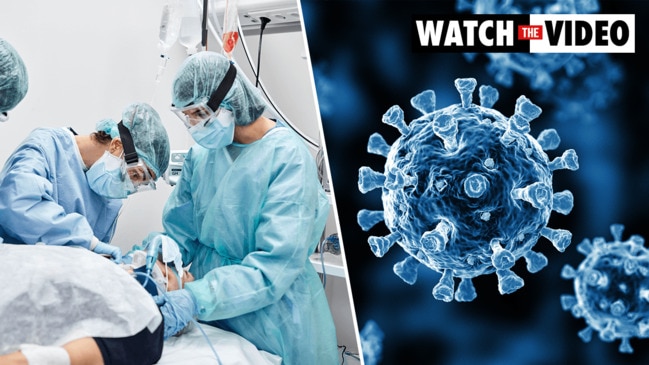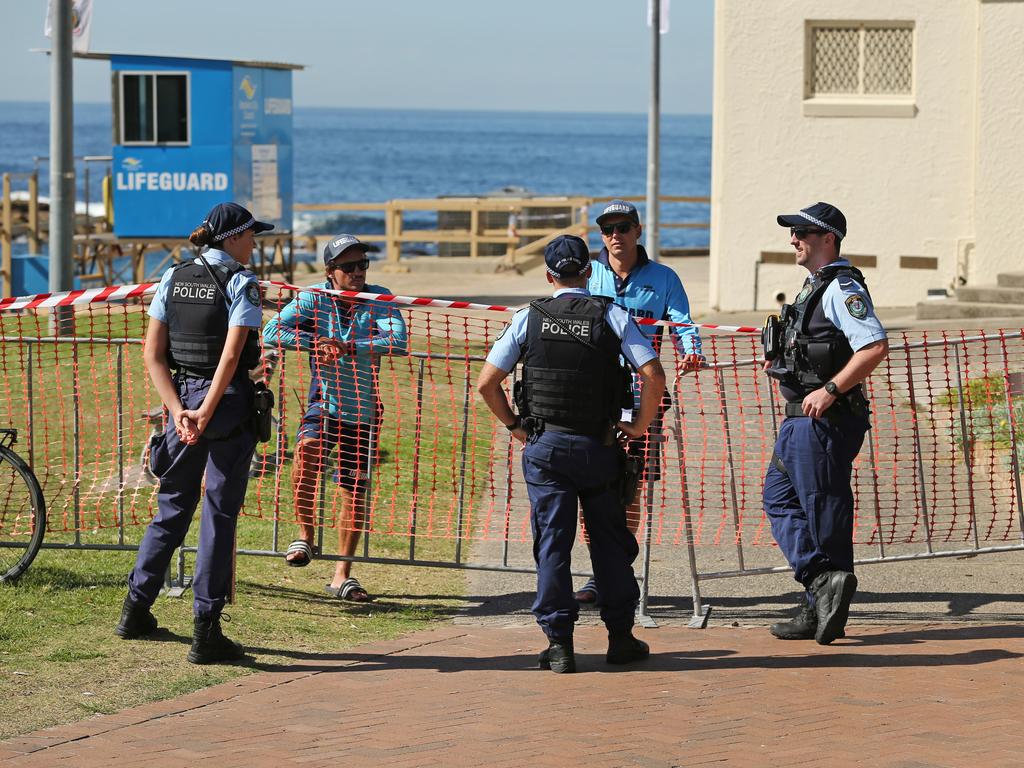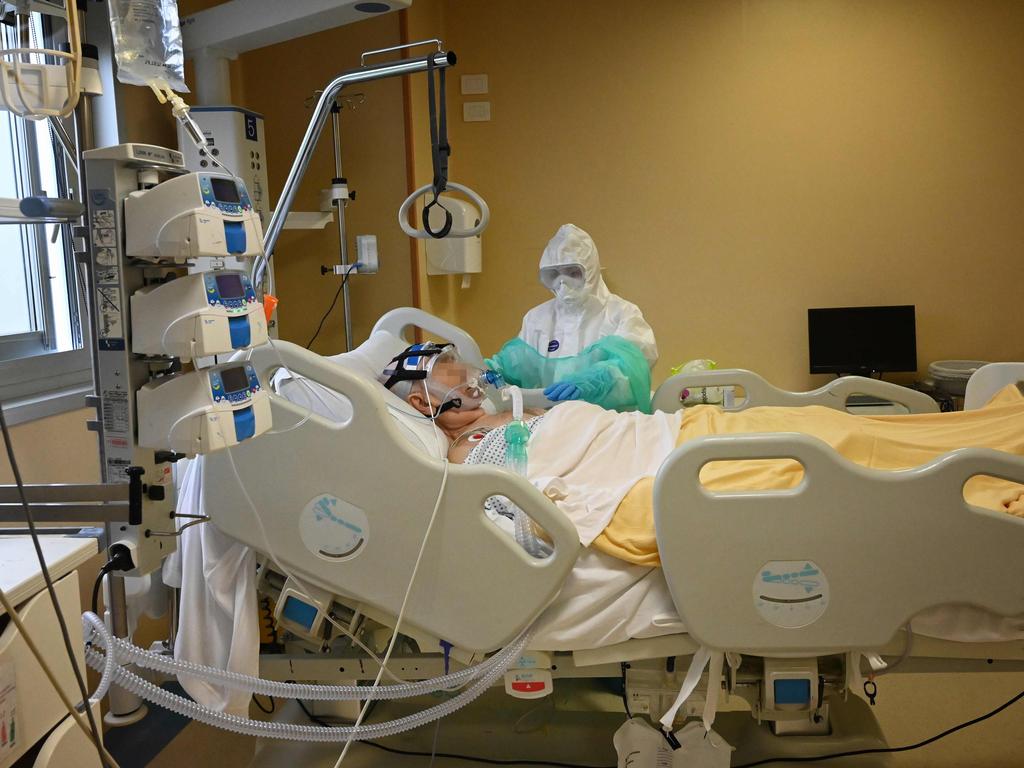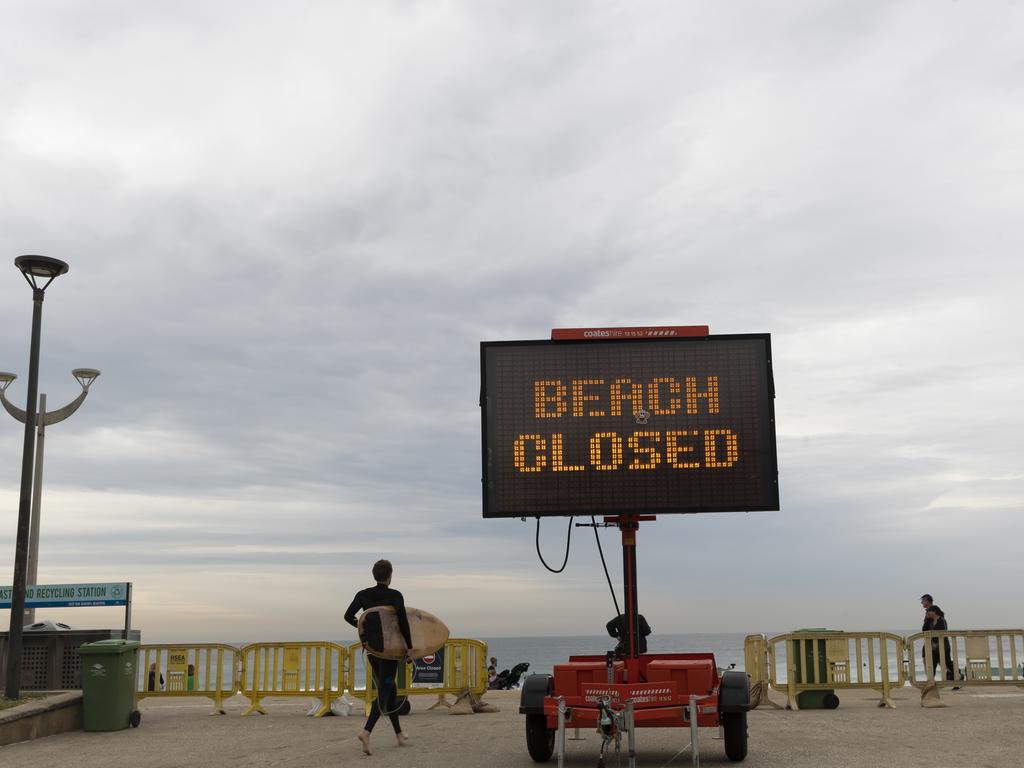Coronavirus: Aussies should brace for rolling lockdowns in years ahead
Australia is preparing to cautiously lift the first virus restrictions next week – but a return to “normal” could still be years away.

ANALYSIS
Brace yourselves: We’re going to need more lockdowns to get on top of COVID-19.
Economists used to dream of exponential growth in relation to the economy. But that same explosive effect seems set to doom us to rolling lockdowns for years to come.
Epidemiologists warn not enough is yet known about COVID-19 to predict its future. But vital questions are emerging among the frantic flurry of reports and studies.
One of them is particularly important: Will those recovering from the coronavirus be immune forever? A year? A month?
Amid the confusion, some are seeing signs that people may be catching COVID-19 again.
If true, that means the “herd immunity” on the lips of economists and politicians remains a very uncertain thing.
It also means we may have to reapply physical distancing measures every time COVID-19 breaks containment. Until we get a vaccine or find effective treatments.
RELATED: Follow the latest coronavirus updates
RELATED: The only valid excuses for going outside
VIRUS SPIKES
The head of the World Health Organization has warned that the worst is yet to come.
“Trust us. The worst is yet ahead of us,” said WHO Director-General Tedros Adhanom Ghebreyesus. “Let’s prevent this tragedy. It’s a virus that many people still don’t understand.”
He said an uncontained outbreak like that of the 1918 flu that killed up to 100 million people remains possible.
“But now we have the technology, we can prevent that disaster, we can prevent that kind of crisis.”
Viruses are reproduction machines. That’s all they do. The only reason they exist. Which is why, even when driven to the point of extinction, they can come back out of nowhere. Fast.
Australia is in an enviable position. We’ve choked COVID-19 growth to a trickle. It’s not running rampant, as it is in the United States and much of Europe.
But the virus hasn’t been defeated. It has only been restrained.
It’s still there – ready to explode among our communities once we lift our guard.
And we don’t yet know how strong that guard needs to be.

UNCERTAIN SIGNS
Meanwhile, some are beginning to doubt the one silver lining less constrained outbreaks may offer: herd immunity.
There are unsettling indications that some who have recovered from COVID-19 don’t gain protection from reinfection. Or, at least, not for long. More and more survivors are testing positive again. Some may even be displaying the return of mild symptoms.
So far, epidemiologists warn, such cases are poorly documented. Which means their relevance is not understood.
“I think it is actually really unclear,” says University of Melbourne epidemiologist Professor Nancy Baxter. “The reports of reinfection may actually be persistence, particularly as they generally rely on PCR (DNA) analysis versus (detecting) active virus.”
It’s because we don’t know enough about this particular virus.
All indications are it doesn’t rely on rapid mutation – like the flu – to deceive our immune system. Instead, COVID-19 ‘hacks’ immune systems to choke the production of resistant antibodies.
But how good is it at doing so?
“It depends if COVID-19 follows the path of the betacoronovirus that cause the common cold (immunity for less than a year), or if it follows the path of SARS (where immunity is more prolonged),” Baxter says. “But what is true, irrespective of the immunity is that there will likely be an additional wave of infection as physical distancing measures are relaxed.”
If hopes of “herd immunity” based on recovered sufferers fall flat, there remain just two viable escape routes.
Vaccines. And treatments.
“If we can’t develop a vaccine, or until one is available, better drugs could mitigate the impact on mortality as well as the impact on the health system,” Baxter says. “So treatment is important as well.”
RELATED: All the fines you can cop for ignoring virus rules
RELATED: How ‘flattening the curve’ saves lives

WE SHALL FIGHT THEM ON THE COUCHES
We’re being asked to do something we’re not good at. We’re not psychologically suited to regular hand washing, not touching our faces or maintaining safe distances.
It’s a positive reinforcement thing.
“The costs of these behaviours are immediate, but the benefits are delayed,” a group of Carnegie Mellon researchers say.
“A more subtle and equally important reason, however, is that the benefits are intangible: You can’t touch, taste, feel or see the benefits of, for example, wiping off your doorknob.”
The upshot is people, in general, can’t ‘see’ the benefits of these behaviours. So they don’t recognise how important they are. Which causes such necessary actions to wane over time.
We don’t get much feedback.
“It seems as if the preventive actions caused nothing to happen because we can’t see the negative outcome that might have happened if we hadn’t been so vigilant,” they say.
It’s a well-documented psychological outcome: People taking antidepressants tend to stop taking their medication as soon as their symptoms improve. That leads to relapse.
“The same is likely true at a societal level. If all the sacrifices people are making pay off in the form of lower infection rates, people will point to those low rates as evidence that the sacrifices weren’t actually necessary.”
RELATED: Who is eligible for coronavirus test
RELATED: Can you catch coronavirus twice?

To viruses such as COVID-19, this presents an opportunity.
If the barriers to its relentless drive to thrive are lifted, exponential growth inevitably kicks back in. Then the pandemic is back.
But Professor Baxter says things aren’t entirely bleak.
“From my perspective, it is also important to emphasise the power of habit and what we consider normal,” she says.
Take seatbelts, for example.
“When I was a kid we didn’t wear seatbelts, and wearing made you feel constrained. It was also hard to remember to do so. Now if I am in a vehicle and don’t have my seatbelt on I feel vulnerable and unprotected. It has become normalised and part of my habit. So something like this could 100 per cent happen for handwashing, avoiding handshaking, hugging etc.”
Jamie Seidel is a freelance writer | @JamieSeidel




